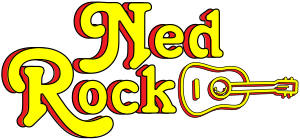What’s in a Name? – #2
…or, Ono, I Can’t Stop Screaming! –
My name’s Janov. What’s that, I can’t hear you. I SAID MY NAME’S JANOV!! Crank it up, let it wail, bleat it at the top of your lungs. High-decibel psychotherapist Arthur Janov would probably love the sound. He’s the common name tying a trio of artists together as a cathartic link throughout the last three decades.
In 1970, John Lennon was pissed. Paul McCartney had beaten him to the punch, officially quitting the Beatles, and John felt slighted, wanting to be the one to break the news to the world. Feeling humiliated by all the craziness he’d had to endure as a former moptop, John stole away with his gal-pal Yoko to the clinic of Dr. Arthur Janov in Venice, California. The pioneering doctor immersed Lennon in primal scream therapy, a process by which people allegedly can grow emotionally when they break through the superficialities of life and examine their private pain and repressed memories. The result was the timeless “John Lennon/Plastic Ono Band” album, featuring highly personal songs, many screamed in rage. Unsentimental expressions of John’s psyche with titles like “God,” “Isolation,” “Remember,” and the gut-wrenching “Mother,” had direct ties to the work of Arthur Janov.
In the 1980s, the spirit of Janov would affect the songs of one of Britain’s top acts. Tears For Fears was a name derived from a chapter heading in Janov’s book “Prisoners of Pain.” Fearmen Roland Orzibal and Curt Smith drew heavily on the teachings of Janov’s process for their album “The Hurting,” and their “get-it-off-your-chest” anthem “Shout” ruled the U.S. charts for three weeks in August 1985. Perhaps as a nod to some Janovian link, Tears For Fears’ 1989 album, “The Seeds of Love,” sounded very close in spirit to the work of Mr. John Lennon during his psychedelic Beatles phase.
As the ‘90s began, Arthur’s healthy howlin’ regimen was used to christen the name of one of England’s funkiest, non-stop partying bands. Primal Scream frontman Bobby Gillespie loved Janov’s first book and “Screamadelica,” the band’s 1991 milestone, is considered by many to be the most important dance-rock record of that decade. Interestingly enough, one of the first singles off the album was “Come Together,” a Beatles’ masterpiece written by, yes…now you’re catching on.
© 2000 Ned Truslow

Comments are now closed.